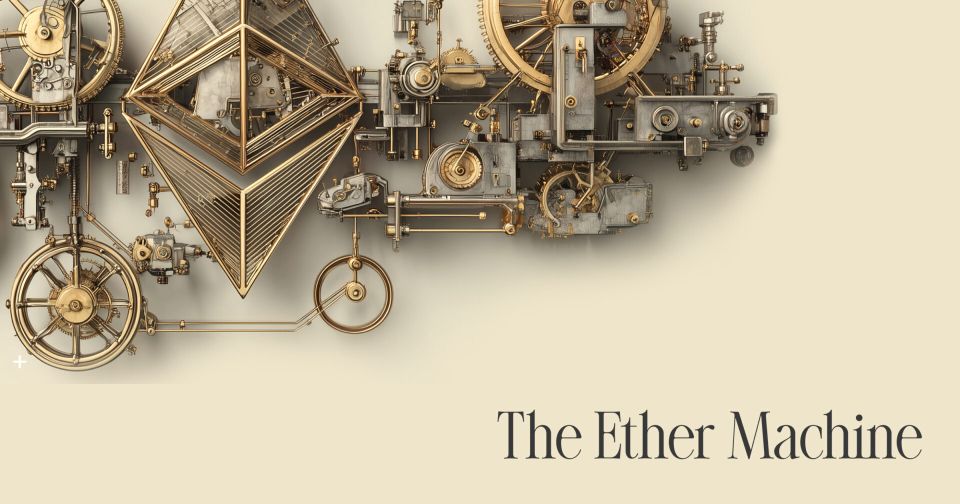The Ether Machine to go public in $1.6B SPAC deal, becoming largest institutional bet on Ethereum

Ethereum is getting its biggest institutional moment yet. A new crypto venture called The Ether Reserve is heading to the Nasdaq through a merger with blank-check firm Dynamix Corporation, according to a report from Reuters. The deal is expected to raise over $1.6 billion and give birth to a new publicly traded entity called The Ether Machine—a name that’s hard to ignore.
The news comes less than a week after Bitcoin Standard announced its plans to go public in a $1.5 billion Cantor-backed SPAC deal, making it the fourth largest public bitcoin holder.
Once the deal closes, the company will launch with more than 400,000 Ether on its balance sheet. That would make it the largest public vehicle for institutional investors looking to gain exposure to Ethereum’s native asset—second only to Bitcoin in market cap.
News of the deal sent shares of Dynamix up nearly 28% in early trading, Reuters reported.
This isn’t just another SPAC announcement. It’s the latest sign that institutional interest in crypto is shifting. While Bitcoin has historically been the asset of choice for balance sheet exposure, Ethereum is starting to pull serious attention. Ether hit a six-month high last Friday and is now drawing in investors not just for its market momentum but for what it can do beyond speculation.
SPACs—short for special purpose acquisition companies—have become a popular route for startups to go public without the traditional IPO process. These shell companies raise funds from investors and then look for a private company to merge with, turning it into a publicly traded firm. So far in 2025, SPACs represent 74 of the 109 IPOs—or 69% of the U.S. total, according to SPACAnalytics.com.
Andrew Keys, who will serve as chairman of The Ether Machine, summed it up plainly: “Bitcoin doesn’t have yield and Ether does.” That yield comes from staking—locking up Ether to support the Ethereum network and getting rewarded in return. Keys knows the tech inside out; he previously worked alongside Ethereum co-founder Joseph Lubin.
Backing the deal is a heavy-hitting lineup of crypto investors including Blockchain.com, Kraken, and Pantera Capital, who together are pouring in more than $800 million through an upsized common stock offering.
Ethereum’s appeal goes beyond staking. According to Keys, it’s becoming the go-to infrastructure for digitizing real-world assets—everything from stablecoins to tokenized securities. He compared Ethereum’s rise to how Google took over internet search. “Ninety percent of stablecoins and other real-world tokenizations are settled on the platform,” he said.
He added that Ethereum can host “infinite assets” and enable “infinite functionality” through smart contracts—those self-executing agreements that cut out the middleman and automate transactions directly on the blockchain.
There’s also a regulatory tailwind. With the passage of the Genius Act earlier this month and clearer rules around U.S. dollar-pegged stablecoins, Ethereum is in a better spot than it was a year ago. “The largest beneficiary of the Genius Act is Ethereum because the majority of stablecoins reside on top of Ethereum,” Keys said.
Once the deal is finalized, shares of The Ether Machine will trade on the Nasdaq under the ticker “ETHM.” The merger is expected to close in the fourth quarter of 2025. If all goes as planned, Ethereum won’t just be a protocol—it’ll be a line item on Wall Street.




